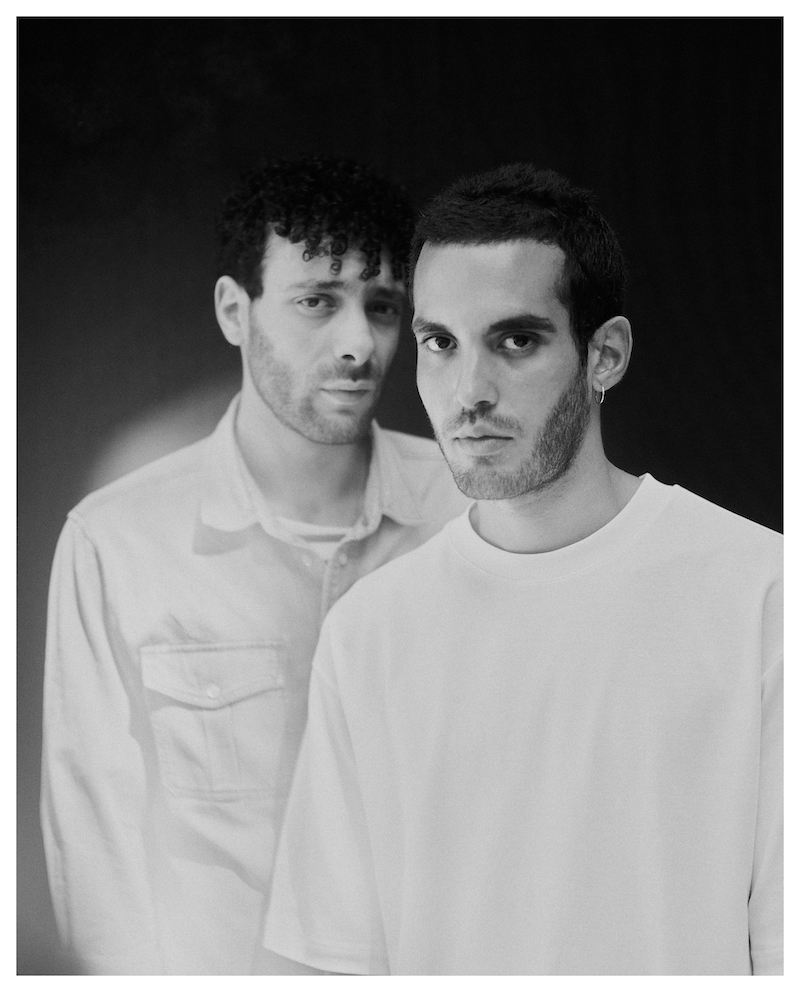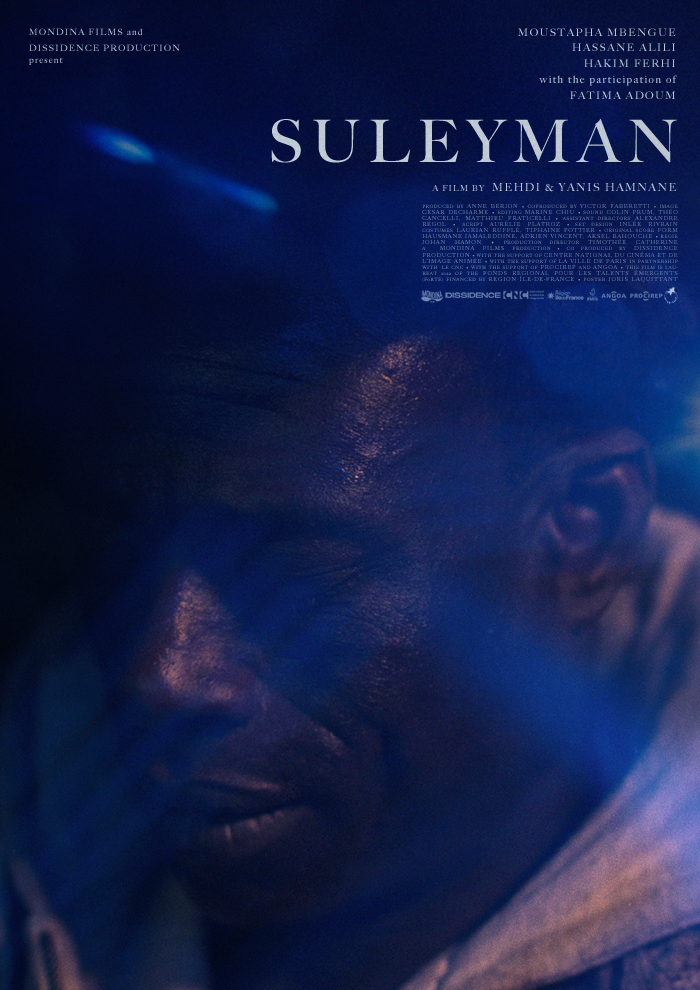Mehdi & Yanis Hamnane
2023
France
French
fiction
drama
26 minutes
Suleyman, a Senegalese migrant awaiting legalization in Paris, finds himself mixed up with Kader, a drug trafficker who exploits him. Forced to move into a vacant apartment on a housing estate, Suleyman encounters Ibrahim, a 16-year-old lookout on probation. Initially suspicious of each other, they gradually develop an unexpected friendship, finding solace and support in their bond.
Suleyman | Moustapha Mbengue
Ibrahim | Hassane Alili
Kader | Hakim Ferhi
Fatima (the mother) | Fatima Adoum
Adda | Adda Senani
Naïma |Yasmine Pirreca
Abdel | Cheikh Ahmadou Bamba Mbengue
Kassim | Thierno Ba
Mohamed | Samba Mbengue
Director of Photography | César Decharme
Editing | Marine Chiu
Sound | Colin Prum, Théo Cancelli, Matthieu Fraticelli
Assistant Director | Alexandre Régol
Script Supervisor | Aurélie Platroz
Production Design | Inlée Rivrain
Costume Design | Laurian Rufflé, Tiphaine Pottier
Original Music | FORM – Hausmane Jamaleddine, Adrien Vincent, and Aksel Bahouche
Production Manager | Timothée Catherine
Producers | Anne Berjon (Mondina Films) & Victor Fabbretti (Dissidence Production)
Festival du Film de Sarlat | Official Selection
European Film Festival of Lille | Official Selection
Festival Côté Court | Selection 'Grand Angle'
Omladinski Film Festival Sarajevo | Official Selection
Off-Courts Trouville | Official Selection
System D | Out of Competition section 'Grand Angle'
Terni Film Festival | Official Selection
Festival Pluriel.les | Official Selection
5MLIFF - New International Cinema / Naples | Official Selection
Festival du Film Francophone Namur | Youth Program
Riga International Film Festival | Official Selection
LE CHOUETTE FESTIVAL | Official Selection
Give Peace a Screen | Official Selection
Festival International Génération Court | Official Selection
Cinema on the Bayou Film Festival | Official Selection
Festival International Cinéma et Migrations | Official Selection
Be TV - Belgium
ARTE - France
Yanis Hamnane was born in Colombes, Hauts-de-Seine, in 1990. In 2010, he decided to join ESRA Paris. He directed his graduation film, Schisme in 2013, and continued to dedicate a significant portion of his time to writing after finishing his studies. He was also involved in co-creating the audiovisual company Les Fistons but left in 2017 to fully devote himself to filmmaking with his brother Mehdi.
Mehdi Hamnane was also born in Colombes in 1994. Passionate about cinema from a young age, he dreamed of becoming a director since the age of 8. In 2012, he joined ESRA directly after obtaining his high school diploma. His graduation short film, Talion (2015), co-directed with Yanis, was selected in over twenty festivals worldwide and received numerous awards.
In 2017, Mehdi was chosen to participate in the "Factory," a program created by Dominique Welinski in collaboration with the Directors' Fortnight to promote new talents on the international stage. He co-wrote and co-directed, with Mariam El Ferjani, the short film Omerta (2018), as part of the Tunisia Factory, which had its world premiere at the Directors' Fortnight in 2018.
In parallel, Mehdi and Yanis also directed music videos with Dissidence Production, which allowed them to develop their style and visual universe (Form do it anyways 2017 / DTF Me Gusta / Form Trigger - 2019 / Form Waterfall - 2020).
In 2019, they met Anne Berjon from Mondina Films, with whom they decided to develop their new short film, Suleyman. After several years of writing and securing funding, they received support from the City of Paris, pre-production aid from CNC, and the FoRTE (Fonds Régional pour les Talents Émergents) from the Île-De-France Region. In 2022, they embarked on the production of the film, which was completed in 2023.

- SCHISM (student short film, 2013) - Yanis Hamnane
- TALION (student short film, 2015) by Mehdi and Yanis Hamnane
- OMERTA (short film 'Factory Program Tunisia', 2018) by Mehd Hamnane and Mariam El Ferjani
Suleyman is a film that falls seamlessly into the logical continuity of directors Mehdi and Yanis Hamnane's previous works. Following Schisme and Talion, their two student films at ESRA Paris that explored identity and family fractures, and Omerta directed by Mehdi for the Factory at the Directors' Fortnight, which focused on immigration through the lens of identity, this project appears to be a synthesis of all the elements that traverse their burgeoning filmography.
The story is both coherent with their cinematic journey and the themes that concern them: social determinism, identity, and the place they accept within a group, consciously and unconsciously. While they did not directly tackle the subject of migration when it was prominent some years ago, it became a latent desire, driven by a meeting and a slice of life, ultimately inspiring them to write and direct this film that they present to the audience.
It is a genuine reflective attempt concerning poverty and what it compels people to do. The characters of Suleyman and Ibrahim serve as two opposing yet complementary figures, drawn together, in conflict, and finally entwined.
Through an intergenerational friendship, the Hamnane brothers follow another duo, Suleyman and Ibrahim, in a meeting that portrays broken life paths. The protagonists and their journey are characterized with a delicate accuracy. It's a story like all migration stories should be told, with humanity.
